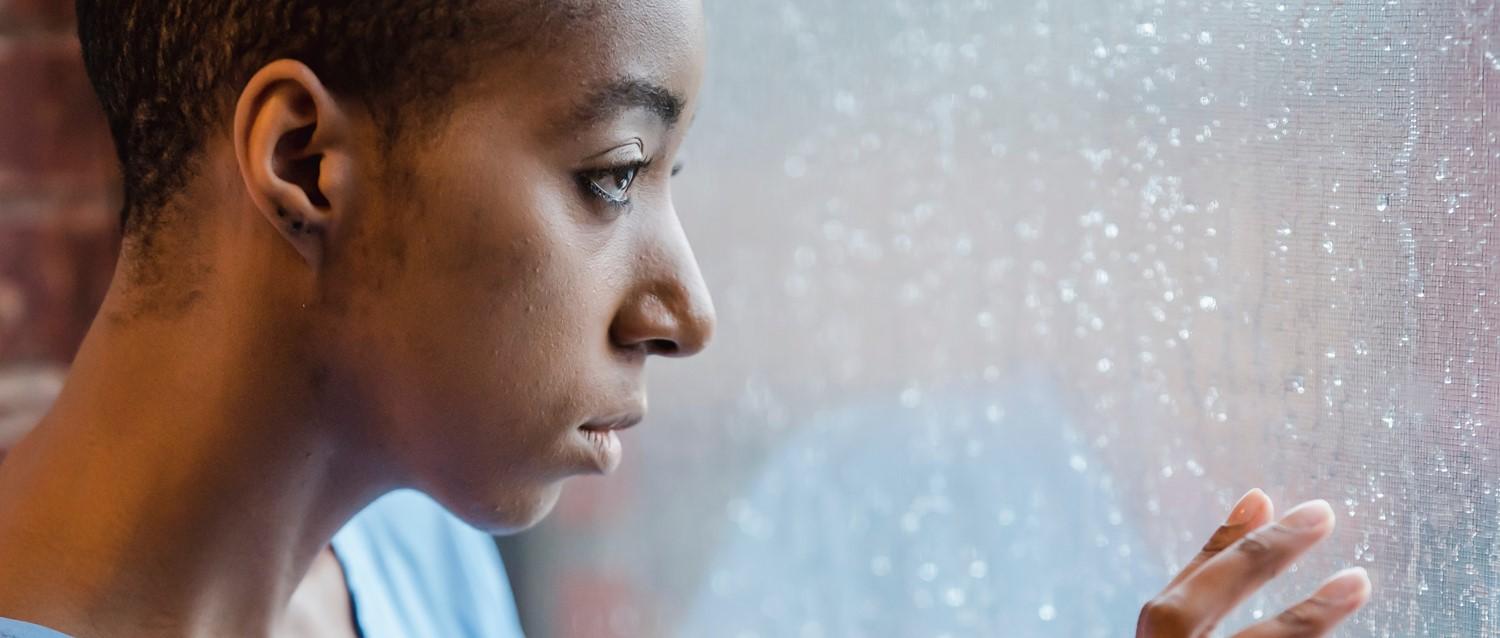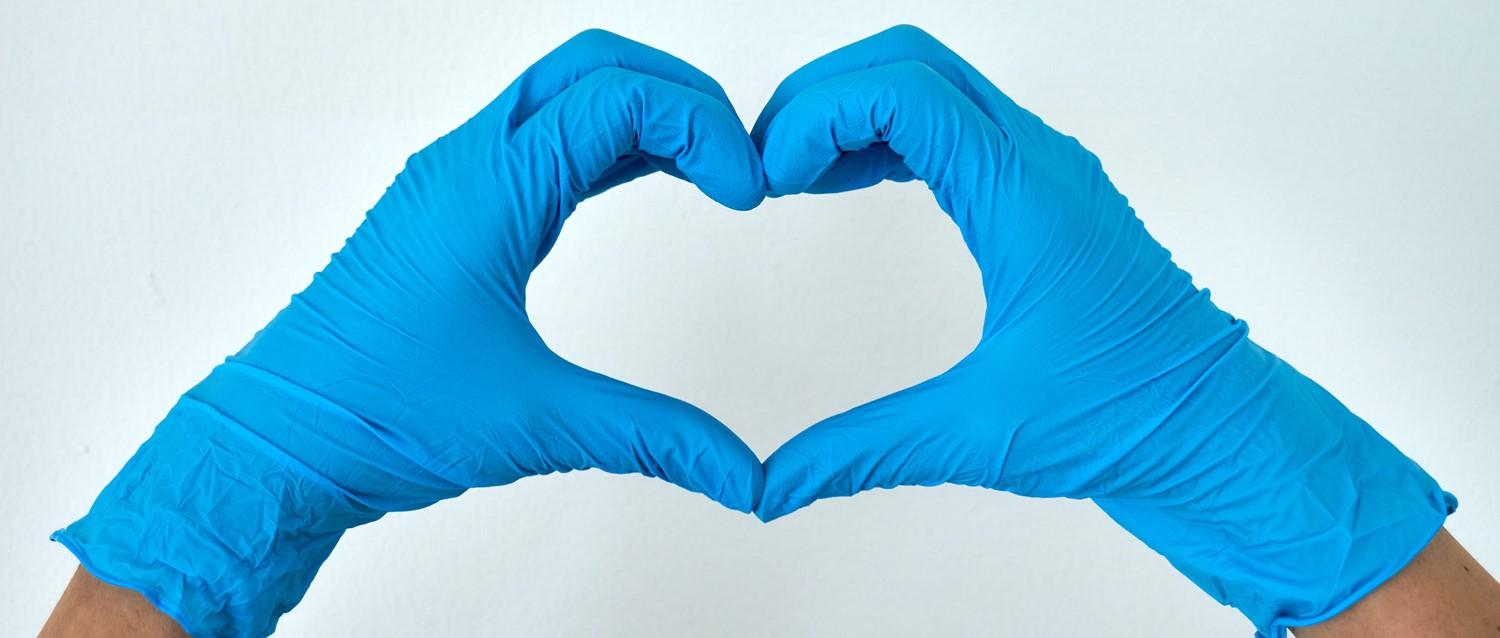
Aquagene Urtikaria: Leben mit einer Allergie gegen Wasser
Peer reviewed by Dr Krishna Vakharia, MRCGPAuthored by Amberley DavisOriginally published 24 Oct 2022
- HerunterladenHerunterladen
- Teilen Sie
Teilen Sie
Stellen Sie sich vor, Sie geraten in einen Regenschauer und haben das Gefühl, in einen Brennnesselstrauch zu fallen, oder Sie können nicht weinen, ohne sich die Wangen zu verbrennen. Für Menschen mit einer Wasserallergie ist dies die Realität. Wie ist es also möglich, mit einer so ungewöhnlichen Krankheit zu leben?
In diesem Artikel:
Lesen Sie unten weiter
What is aquagenic urticaria?
Aquagenic urticaria is a rare condition where skin contact with water causes a person to come out in a raised, itchy rash. Urticaria, otherwise known as hives, simply describes an allergic skin rash, which is itself a relatively common complaint. Aquagenic urticaria specifically refers to this reaction as a symptom of water allergy - and this is much more unusual.
People with aquagenic urticaria can be triggered by rain, snow, sweat and tears - water sources that most of us needn't worry about.
This allergic reaction doesn't appear to be affected by the temperature of the water, nor by how acidic or alkaline it is.
Symptoms of aquagenic urticaria
What happens when water touches your skin?
Within minutes you may develop:
A skin rash or raised, red bumps.
A burning sensation.
Juckreiz.
What about drinking water?
In serious cases this might cause these side-effects:
A rash around your mouth.
Keuchen.
Schwierigkeiten beim Schlucken.
Symptoms tend to go away in 30 to 60 minutes. However, as water is so hard to avoid, self-care steps and treatment options are hugely important in improving a person's quality of life.
Lesen Sie unten weiter
How rare is aquagenic urticaria?
This allergy is so rare that there are fewer than 100 cases of aquagenic urticaria reported in medical literature1.
From this small pool of data, we know that aquagenic urticaria affects more women than men. We also know that this condition often starts during puberty2.
What causes aquagenic urticaria?
Aquagenic urticaria is as poorly understood as it is rare. However, research to determine the exact cause is ongoing, and there are a couple of popular theories:
Rather than an allergy to water itself, it may be chemicals in the water that act as allergens, triggering the immune system to release symptom-inducing histamines that attempt to fight the allergen.
The water may be interacting with naturally produced oils on the skin, known as sebum. An unusual interaction might produce a toxin that triggers the body to release histamine.
Patient wählt aus für Andere Allergien

Allergien, Blut und Immunsystem
How can you tell if you have a latex allergy?
While you've probably heard of people being allergic to latex, you might be unsure of how a latex allergy presents itself, or perhaps you suspect you have one yourself. How do you know if you have a latex allergy and whether it can be treated?
von Emily Jane Bashforth

Allergien, Blut und Immunsystem
Medikamentenallergie
Medicines can cause allergic reactions. In this leaflet these reactions are called 'drug allergies'. In this instance the drugs referred to are medicines people take for their health. For example, antibiotics or anti-inflammatory painkillers rather than drugs of addiction. Allergic reactions can happen with prescribed medicines as well as those you have bought from a pharmacy. Drug allergies may be mild, moderate or severe. Some can come on in a matter of minutes. Others may take days or even weeks to develop. Some reactions are so severe they can be life-threatening. Mild reactions can sometimes be treated simply by stopping the medicine. Severe reactions usually require hospital admission.
von Dr. Hayley Willacy, FRCGP
Lesen Sie unten weiter
What is the cure for aquagenic urticaria?
There's no cure for being allergic to water. Instead, the few people with this condition must try and limit their exposure to water, where possible, and take allergy treatments.
Treating the allergy
Antihistamin-Tabletten
This is a common treatment for many types of allergies, including hay fever, that works by blocking the chain reaction that happens when your body releases histamine. Doctors usually recommend second-generation antihistamines, such as cetirizine and loratadine, as these don't cause drowsiness.
Skin barrier creams
These are applied directly onto skin, these can help to prevent water from seeping into skin and triggering an allergic reaction.
Steroid-Medikamente
This is used to dampen down the immune response and stop histamine release.
Allergy medicine
Omalizumab is an injection that acts against the antibodies produced by the immune system, to prevent symptoms from flaring up.
Ultraviolet light therapy
Also known as phototherapy, this has been known to work in some patients. It works by toughening the skin to make it less sensitive to water.
Epipens
These are for those who have severe reactions such as anaphylaxis.
How do people live with aquagenic urticaria?
People with aquagenic urticaria have no problem with water inside their bodies - no one could live if their bodies rejected water internally.
This extremely rare condition is all about how water interacts with the skin. Completely avoiding exposure to water isn't possible, but being careful can help to make daily life easier:
Checking the weather forecast
Most people dislike getting caught in the rain, but for people with aquagenic urticaria, this can feel like falling into a bush of stinging nettles.
Taking brief, infrequent showers
Washing can't be completely avoided, but it's possible to shower less by substituting alcohol-based cleaners.
Managing sweat
Sheltering from extreme heat and avoiding sweat-inducing activities may help.
How do people with aquagenic urticaria eat and drink?
For most people with the condition, drinking water isn't an issue. However, some find that their lips and the inside of their mouth swells, itches, or burns - making drinking a necessary but painful daily experience.
The only ways to manage this is by relying on treatments and by avoiding foods that have a high-water content, such as tomatoes, cucumber, and watermelon.
Weitere Lektüre
Artikel Geschichte
Die Informationen auf dieser Seite wurden von qualifizierten Klinikern geprüft.
24 Oct 2022 | Originally published
Verfasst von:
Amberley DavisPeer-Review durch
Dr. Krishna Vakharia, MRCGP

Fragen, teilen, verbinden.
Stöbern Sie in Diskussionen, stellen Sie Fragen, und tauschen Sie Erfahrungen zu Hunderten von Gesundheitsthemen aus.

Fühlen Sie sich unwohl?
Beurteilen Sie Ihre Symptome online und kostenlos